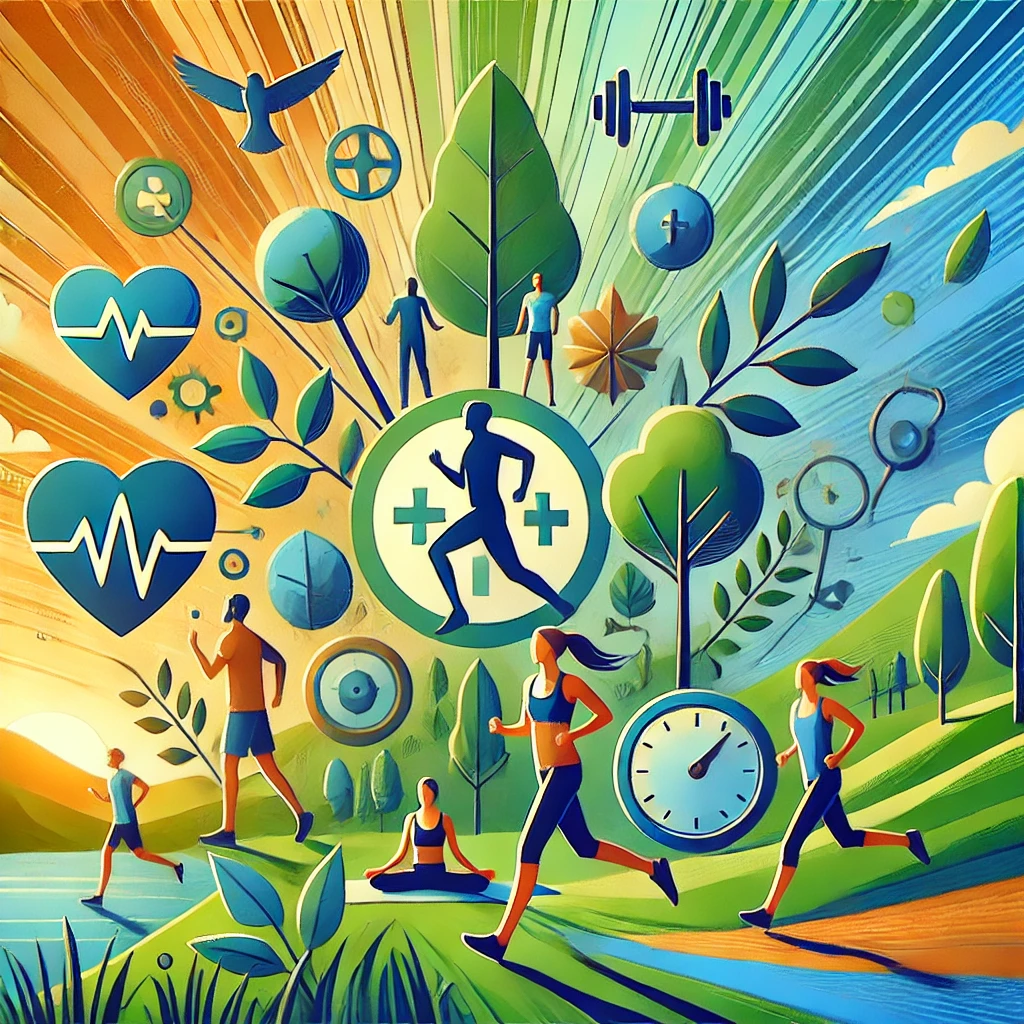Importance of Physical Health: Why It Matters for Our Well-Being
When I think about my well-being, physical health always comes to mind. It’s not just about looking good; it’s about feeling good and living a full life. Physical health impacts every aspect of our existence, from our mood to our energy levels. In this article, I’ll delve into the importance of physical health and why we should prioritize it in our daily lives.
Understanding Physical Health
Contents
- 1 Understanding Physical Health
- 2 1. Boosting Mental Health
- 3 2. Enhancing Physical Fitness
- 4 3. Preventing Chronic Diseases
- 5 4. Improving Sleep Quality
- 6 5. Boosting Energy Levels
- 7 6. Enhancing Cognitive Function
- 8 7. Building Stronger Bones and Muscles
- 9 8. Promoting Longevity
- 10 9. Enhancing Social Connections
- 11 10. Creating Healthy Habits
- 12 Conclusion: Prioritize Your Physical Health Today!
Physical health refers to the state of our body and how well it functions. It encompasses everything from cardiovascular fitness to muscle strength and flexibility. When I prioritize my physical health, I notice a significant difference in my overall quality of life.
1. Boosting Mental Health
One of the most significant benefits of maintaining physical health is its positive impact on mental well-being. Regular exercise releases endorphins, often called “feel-good” hormones. I find that after a workout, I feel happier and more relaxed.
- Reduced Anxiety and Depression: Engaging in physical activity helps alleviate symptoms of anxiety and depression. Studies show that those who exercise regularly report lower levels of stress.
- Improved Mood: Exercise can act as a natural mood lifter. I often notice that my mood improves significantly after just 30 minutes of activity.
2. Enhancing Physical Fitness
Physical fitness is crucial for maintaining a healthy lifestyle. It includes various components such as endurance, strength, flexibility, and body composition.
- Cardiovascular Health: Regular aerobic exercises like walking or running strengthen the heart and improve circulation. I aim for at least 150 minutes of moderate-intensity activity each week.
- Muscle Strength: Strength training helps build muscle mass, which is essential for metabolism and overall strength. I incorporate weightlifting into my routine at least twice a week.
- Flexibility: Activities like yoga or stretching improve flexibility, which can help prevent injuries and enhance overall mobility.
3. Preventing Chronic Diseases
Maintaining good physical health can significantly reduce the risk of chronic diseases. As I strive to stay active, I know I’m taking steps to protect myself from various health issues.
- Heart Disease: Regular exercise lowers blood pressure and cholesterol levels, reducing the risk of heart disease.
- Diabetes Management: Physical activity helps regulate blood sugar levels, making it crucial for preventing type 2 diabetes.
- Cancer Prevention: Some studies suggest that regular physical activity may lower the risk of certain cancers, including breast and colon cancer.
4. Improving Sleep Quality
I’ve found that regular exercise significantly enhances my sleep quality. When I engage in physical activities during the day, I fall asleep faster and enjoy deeper sleep.
- Sleep Patterns: Exercise can help regulate sleep patterns by promoting relaxation.
- Sleep Disorders: Those who are physically active often experience fewer sleep disorders like insomnia.
5. Boosting Energy Levels
When I feel sluggish, a quick workout often revitalizes me. Staying active increases stamina and energy levels throughout the day.
- Increased Endurance: Regular exercise improves endurance, allowing me to perform daily tasks with greater ease.
- Reduced Fatigue: Engaging in physical activity can combat feelings of fatigue by increasing overall energy levels.
6. Enhancing Cognitive Function
Physical health also plays a critical role in brain function. I’ve noticed that when I’m active, my mental clarity improves.
- Sharper Memory: Regular exercise boosts memory retention and cognitive function.
- Better Focus: Physical activity helps improve concentration and productivity.
7. Building Stronger Bones and Muscles
As we age, maintaining bone density becomes increasingly important. I focus on weight-bearing exercises to strengthen my bones.
- Osteoporosis Prevention: Weightlifting and resistance training are effective in building bone density.
- Muscle Maintenance: Strength training helps maintain muscle mass as we age, reducing the risk of falls and injuries.
8. Promoting Longevity
Staying physically active contributes to a longer life. Research indicates that regular exercise can add years to our lives while enhancing the quality of those years.
- Reduced Mortality Risk: Active individuals have a lower risk of premature death compared to sedentary individuals.
- Healthy Aging: Physical activity helps maintain independence as we age by promoting mobility and strength.
9. Enhancing Social Connections
Engaging in physical activities often leads to social interactions. Whether it’s joining a gym or participating in group classes, staying active allows me to connect with others.
- Community Support: Group workouts foster a sense of community and accountability.
- Shared Goals: Working out with friends or family creates shared goals that enhance motivation.
10. Creating Healthy Habits
Incorporating physical health into our daily routines helps establish long-lasting healthy habits.
- Set Realistic Goals
- Start small with achievable targets.
- Gradually increase your activity level over time.
- Find Activities You Enjoy
- Choose exercises that you look forward to doing.
- Mix things up to keep your routine fresh and exciting.
- Stay Consistent
- Aim for regularity rather than perfection.
- Consistency is key to reaping the benefits of physical health.
Conclusion: Prioritize Your Physical Health Today!
The importance of physical health cannot be overstated. By prioritizing our well-being through regular exercise and healthy habits, we enhance our quality of life significantly. Remember that every small step counts!
Read more: Unlock Vitality: Simple Healthy Eating Habits You Need
